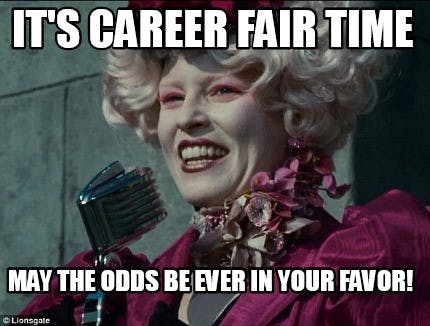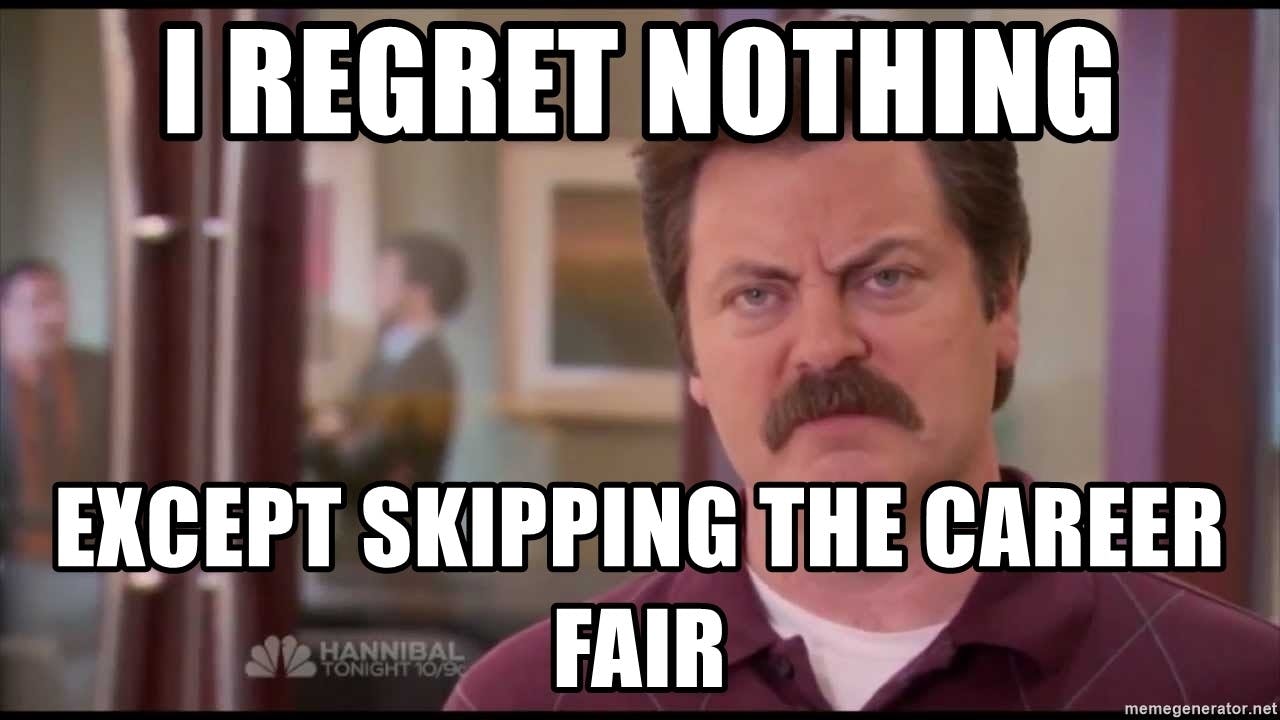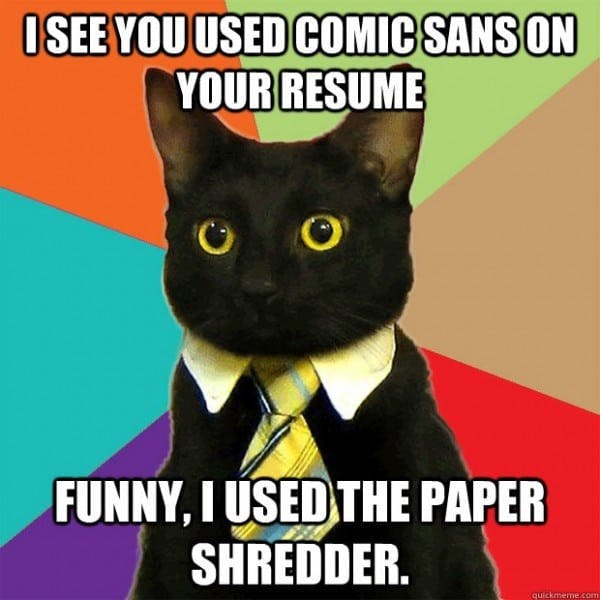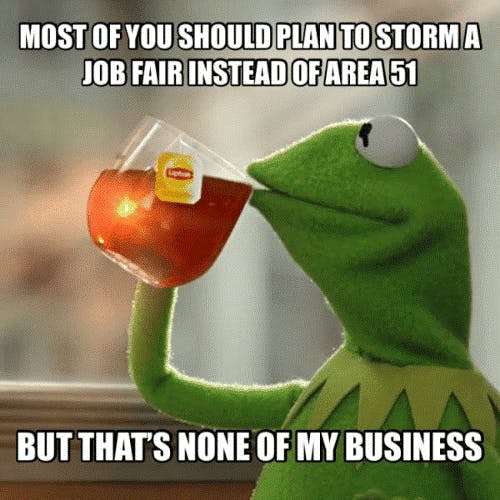Land your dream job at career fairs.
8 ways to prepare for career fairs and land a job.
Job fairs are a good way to find out about jobs, and to network with people, get insights into the professional world, and find out what opportunities there are out there. One of the most important conversations you're going to have is with the recruiter. It's important to know that they're busy people. They're meeting a lot of people, so the more memorable and engaging you can be, the better.

Recruiters are a bunch of busy people. Because they’re so inundated with resumes, we have to do our personal best to stand out in order to get their attention. They are meeting with many people at once and trying to remember who they are with. As such, we need to keep a few things in mind. Firstly, to make a first impression. Ensure that, when you engage with recruiters at job fairs, you are confident and smiling. Displaying these traits will make you memorable to them. Here are some more things to keep in mind while you set out on your job-hunting journey at career fairs:
Pre Register- Job fairs often require you to pre-register for the event, which usually includes submitting a resume and giving information about your work history. This gives employers a chance to review your resume before the event. It also helps them decide whether you have the relevant qualifications for the positions they're hiring for. Employers use the information to pre-screen job seekers and find the candidates they want to meet in person. The reality is that job fairs are becoming increasingly popular, and competitive. To maximize your chances of getting noticed, it’s important to register as early as possible. This is because the early-bird registration fee is cheaper than the walk-in fee, and the pre-registration process will give employers time to vet you and possibly even get notes about you for when you show up. Remember that you won't always be the only job seeker pre-registered for the event, but it increases your chances of getting noticed.

Understand what recruiters or employers are looking for It’s crucial to understand what the company is looking for, which means reading up on them and trying to frame your resume to suit the company’s goals and objectives. Take some time to think about what they might be looking for. What do they need? What type of people do they want to hire? Is there anything in their company culture that would help or hinder you? All of these questions are relevant to the company profile. The more you understand the company’s goals and connect with them, your answers to their questions will be more in line with what they are searching for in their prospective employees. “Thus, instead of focusing your resume on your work history, emphasize your soft skills. Most employers at a job fair prefer candidates who share the same values as the company and are a good addition to the company's culture” advises the Indeed Editorial Team in an article of theirs.
Research- A job fair is literally a battlefield. You should be well-armed with the knowledge of which companies are going to participate in the career fair. Make a list of companies you're interested in working for and research into them. Hiring managers expect you to come to a job fair with at least a basic knowledge of their company and its products or services.
Do have multiple copies of your resume at hand. Each should be framed and directed to just that one job position and company. Generalized resumes are perceived as blank sheets of paper by recruiters/hiring managers. If you cannot make them feel that the resume is meant for that job position and company only, they will most probably trash it without bothering another glance at them. Making them sense your genuine passion for that job through the resume is important.

Supplementing the resumes with portfolios is a very good strategy. You have a wonderful opportunity to present the recruiters with physical manifestations of your skills through the portfolios.
Use sturdy paper that does not crumple easily to print out your resumes. We would like to ensure a long time survival of our resumes, right? Most often after a lengthy day at the job fair, when the recruiters gather all the resumes submitted, many of them have been crumpled so badly that they can no longer read the print on them. So make sure that both the ink and paper are of long-lasting durable quality.
Prepare appropriate attire - Be dressed in formal attire at the career fair. You could even try dressing up in accordance with the company’s dress code if you can manage to find it.
Elevator pitch ready - Whether you’re starting out at the very beginning of your career or you’re changing careers, a well-crafted and rehearsed elevator pitch will be of supreme importance. Your elevator pitch should take two minutes at most to deliver. This speech should briefly explain who you are (your skills and career), what your career goal is, and what you can bring to a prospective company. This 30- to 60-second speech is one of the most important pieces of learning how to prepare for job fairs, affirms Lisa Tynan, an experienced Human Resource recruiter, in an article for TopResume.
Interview questions ready- Remember that the recruiters do not have a lot of time to spare. You should aim at keeping the conversation short, sweet, and simple. If you have researched the company and the job (which you should), you will have some questions regarding the job for the recruiters. Having questions to ask them is a great sign for the recruiters/hiring managers as they identify this with your interest in their company.
Plan of Action- Have a Plan of Action at hand so that you manage your time well. Time management is the key to not missing a single company on your target list. Get an idea of the layout of the convention hall and know where to find the different booths. The convention hall will be split into sections by company. You may speak to one or two of your low-priority companies first and then when you’ve practiced, speak to your high-priority companies. And speaking with high-priority companies early on can be beneficial because they’re more likely to be approachable earlier in the day.
Virtual Job Fairs ##
The Pandemic has resulted in job fairs moving into the virtual space. All meetings, interviews, conversations happen in online chat rooms with only the text function usually(all introverts rise!). All one needs to be careful of is to use professional language. No texting language, slangs or emojis should creep in the texts while you are conversing with the representatives from the companies. Being polite and careful of your language throughout is the aim. If they like you at this step they might ask you to meet them over platforms like Zoom or GoogleMeet. Treat these meetings like virtual job interviews. Keep the way you dress and body language in mind. Dress up prim and proper just like you would have done at an offline interview. Also, have decent body language. You should look confident but be wary of looking haughty or arrogant.

Here are some more things to help you ace virtual job fairs:
Keep your devices up to date.
Download the recent versions of the apps/software.
If possible try having the latest versions of the OS too.
A STABLE INTERNET CONNECTION (Very Very Important folks!)
Clear the background out of clutter- Keeping your background clear of all things unnecessary (keep it plain preferably) makes the setting professional. Pro-tip: you can try blurring out the background too
Seek a place where there is no disturbance- We know this is difficult. After all, all households have some sort of chaos happening in it all the time. But, try your best to seek places with the least amount of disturbance.
Don’t forget to ask questions and engage- “It’s even easier to be a wallflower at a virtual career fair than a traditional one,” says Jessica Koltz, Rasmussen University Career Service advisor, in an article for Rasmussen University. “Employers in virtual career fairs are very engaging. They’re there because they’re eager to hire and are looking to engage with potential candidates like yourself,” she says further.“Once they greet you, they’re looking to receive some engagement from you in return.” Once the representatives initiate contact with you please ask questions about positions, vacancies, the duties that particular position curtails, etc. A curious and engaging candidate is always a delight for them. Your degree of engagement is always a yardstick for them to gauge your interest in that particular position.
Reach out to them for the next steps- Don’t hesitate and ask them what your next step must be. Do you need to contact their Human Resources or should you fill up another form or should you wait for them to contact you for a formal interview? Do ask them for their contact or for how you should stay in touch with them.
Follow-up- Following up with a thank you note works like magic in a lot of cases. Thanking them for the time they had given you gives the recruiters a good impression of you. You also give them an opportunity to jog their memory. The employers are reminded of you once more, in case you have moved to the back of their minds. Stay in contact with the recruiter by adding them on LinkedIn.
Career fairs are great for your first steps into the job-search process. There are many companies along with their recruiters under one roof. An absolutely marvelous opportunity! But to nail it in these career fairs, you must be prepared. Keep all the points discussed above in mind before you head out on your job-hunt in career fairs. Best of luck! We hope that you have a very successful endeavor.
